In the UK farmers recall simple circles appearing on their land for generations. The British media first reported on the circles in the early 1980s. By 1990 crop circles had exploded into the public mind as the new phenomenon changed from simple circular patterns into huge and complex, geometric formations. Crop circles are a world-wide phenomenon, however, the main concentration of events are to be found in Southern England, around ancient sites such as Stonehenge, Avebury and Silbury Hill. Although there are many theories as to their creation, none have been able to explain satisfactorily exactly how the circles are made. Alien spaceship landings or flying light-bulbs? The obvious assumption would be that all the circles and shapes are man-made, but even amongst scientists there are some who reject this theory.
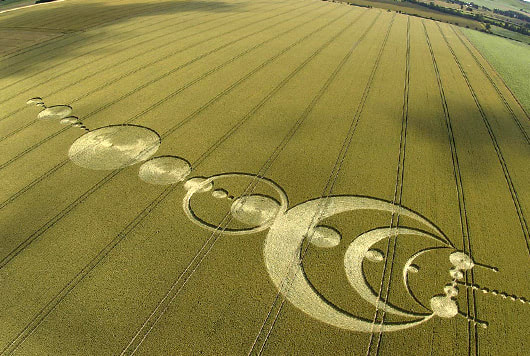
Books, magazines and websites on crop circles generate an alien mystique, encouraging people to consider the unknown. Introductions like the above are quite common. Man-made or not, crop-circles prove to be very visual and powerful "installations". This also appears to be John Lundberg's vision. He is a professional crop circle maker and in august 2006 he decided to help Greenpeace on their campaign against genetic engineering in relation to environmental disasters.
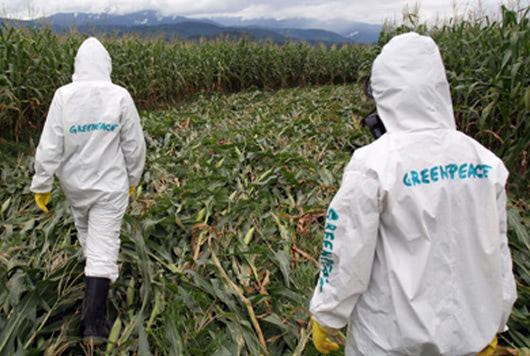
Greenpeace believes GMOs (Genetically Modified Organisms) should not be released into the environment as there is too little adequate scientific understanding of their impact on the environment and human health. The organization advocates immediate interim measures such as labeling of GE (Genetically Engineered) ingredients, and the segregation of genetically engineered crops and seeds from conventional ones. Greenpeace opposes all patents on plants, animals and humans, as well as patents on their genes as for life is not an industrial commodity.
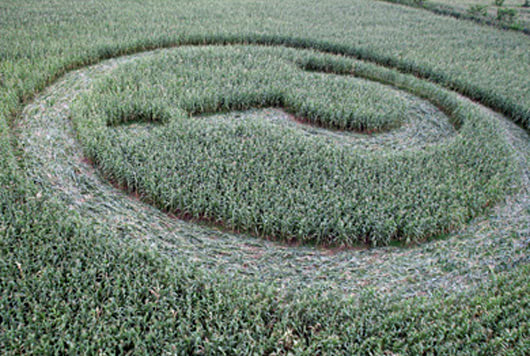
In a small village called Cuanajo in the state of Michoacan, together with three helpers, Lundberg created a 65 meter (200 feet) question mark.
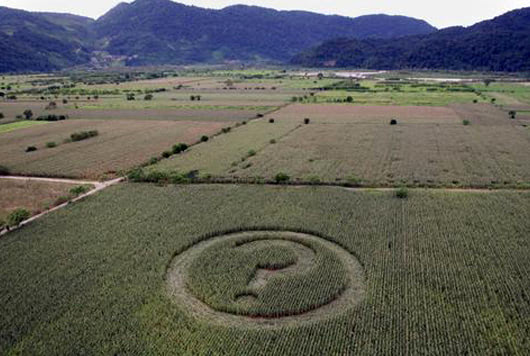
The field they chose to create the mark in, is situated in a GE free region and a celebration was held to honour this status. The festival showed that each type of maize has a purpose. Maize for tortillas, tamales, atoles, pozole, animal feed and also to create handcrafts which the locals sold in market stalls. The biodiversity of this region is characteristic and according to Greenpeace it is necessary for Mexico to rid itself of genetic contamination and keep its maize GE-free.
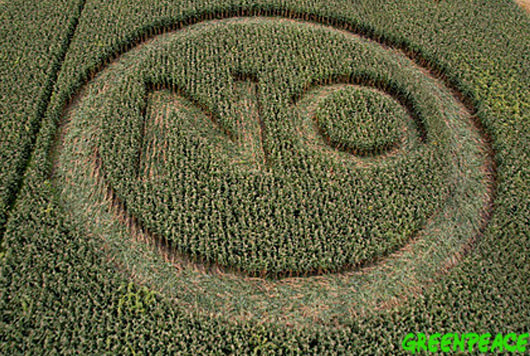
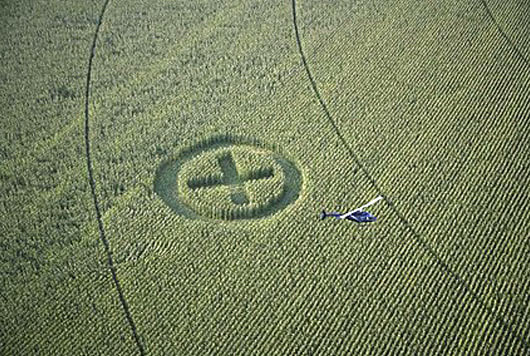
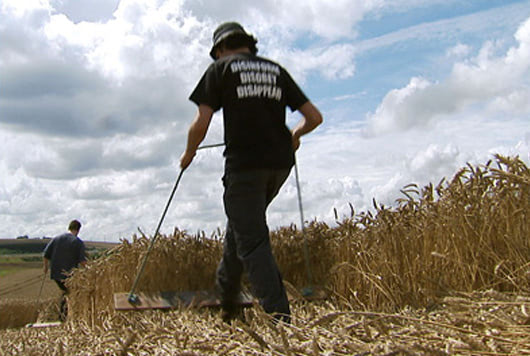
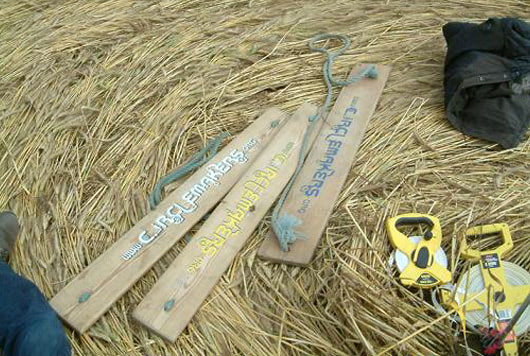
Besides cornfields, also wheat, barley, canola, rye, linseed, grass, rice, sand and soy turn out to be extremely powerful media to spread all kinds of messages over the internet. A selection:
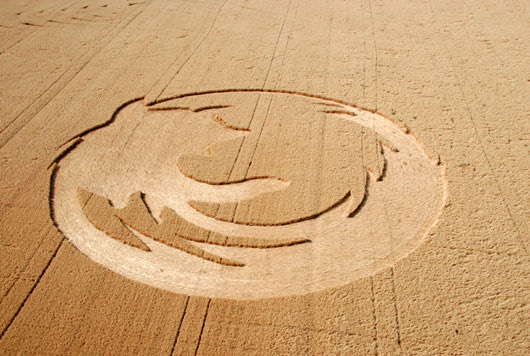
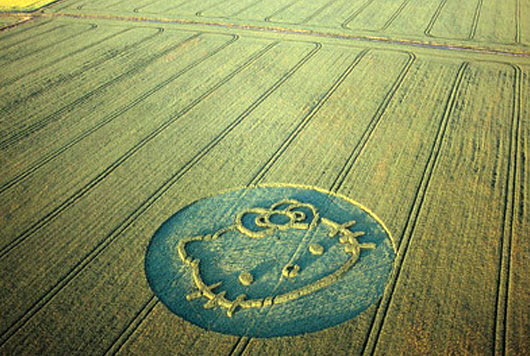
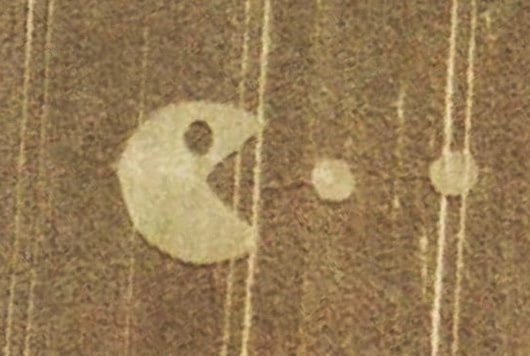
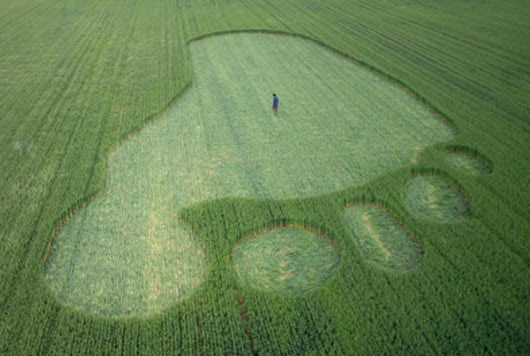
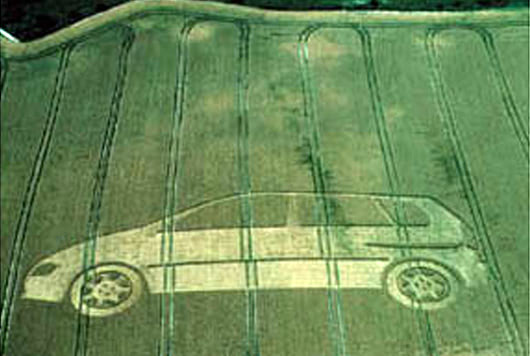
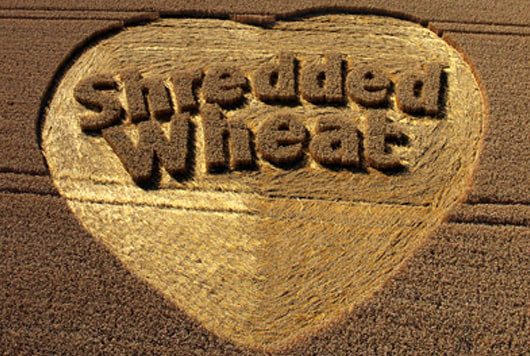
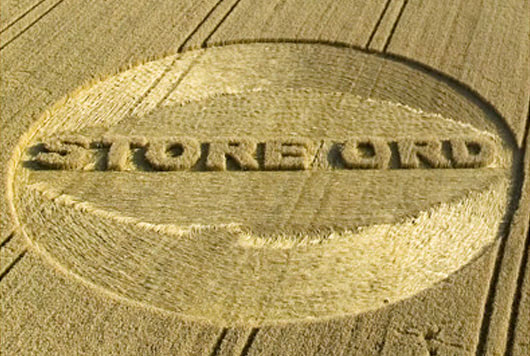
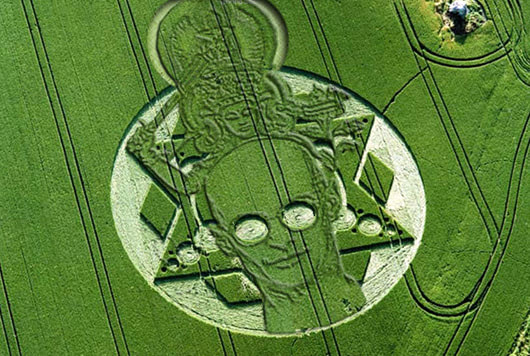
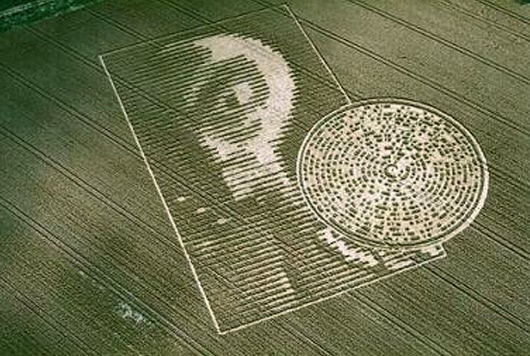
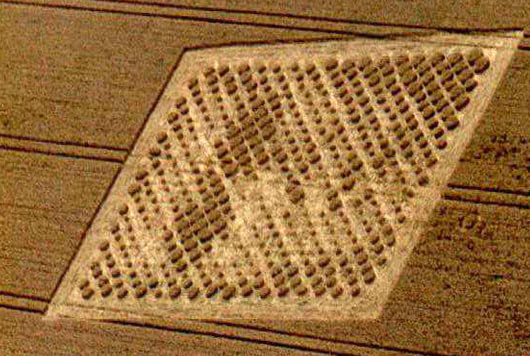
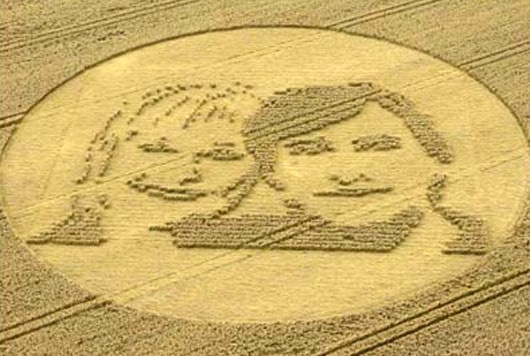
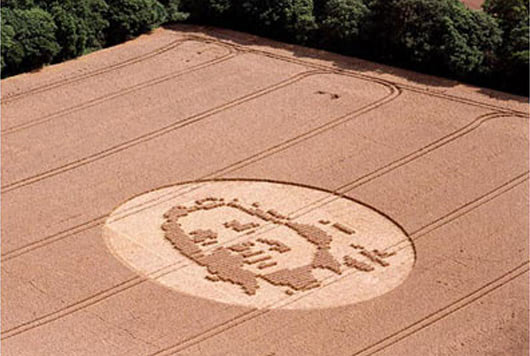
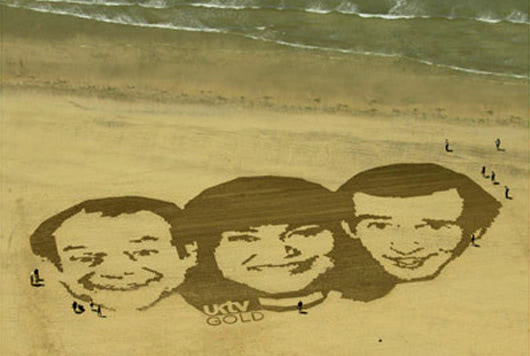
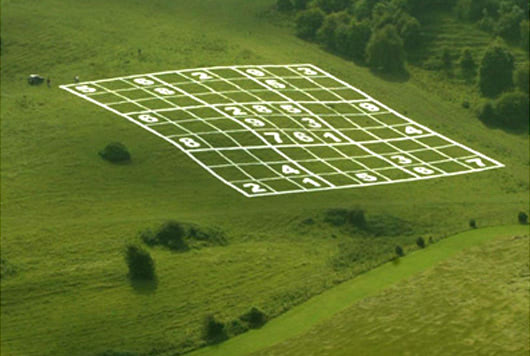
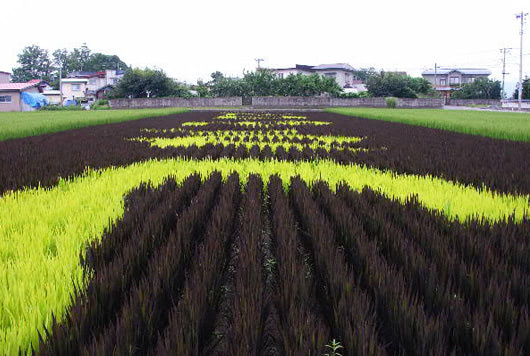
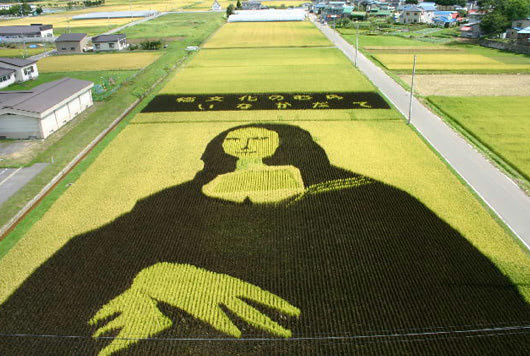
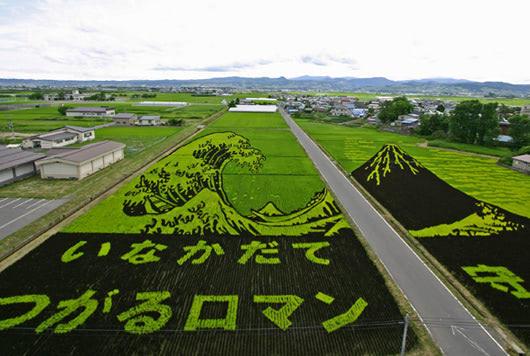
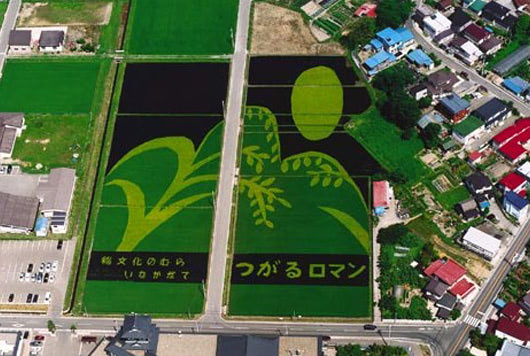
via pinktentacle.org
But wait, there's more!
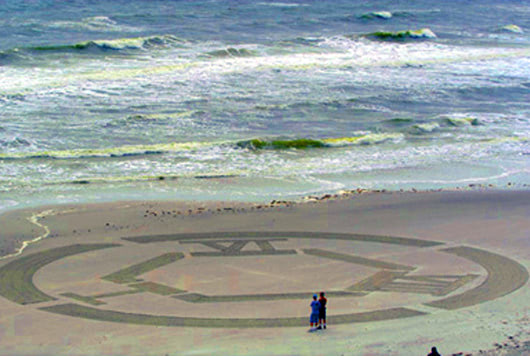
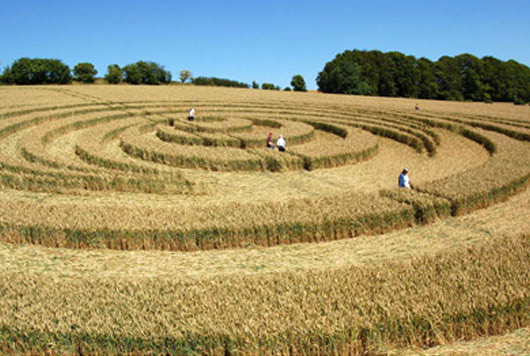
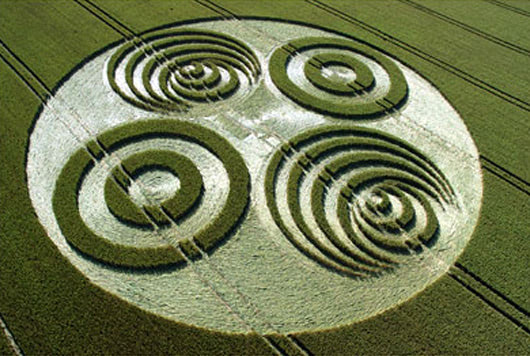
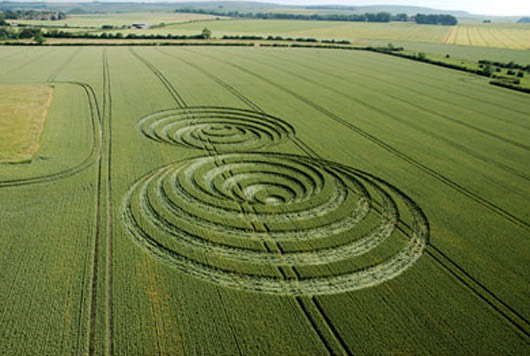
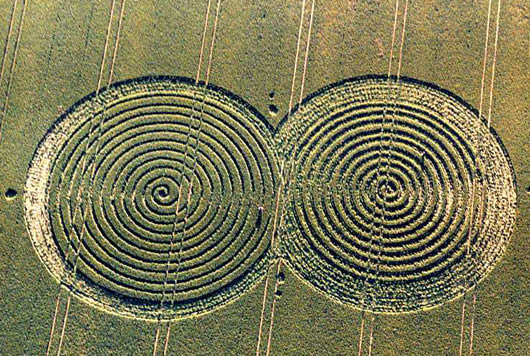
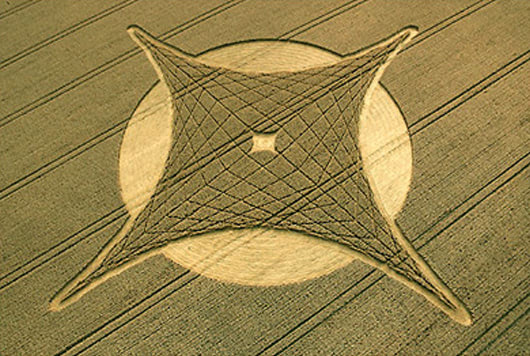
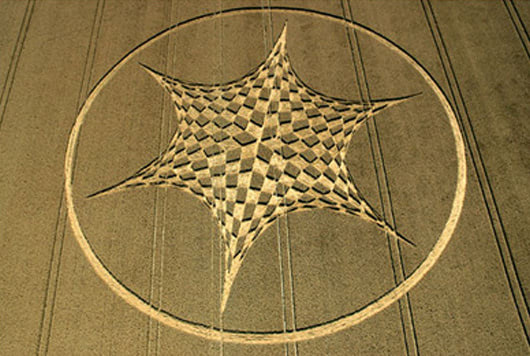
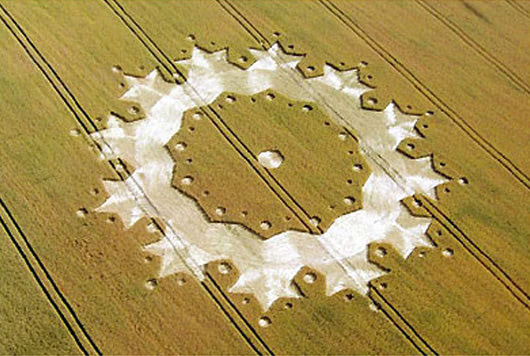
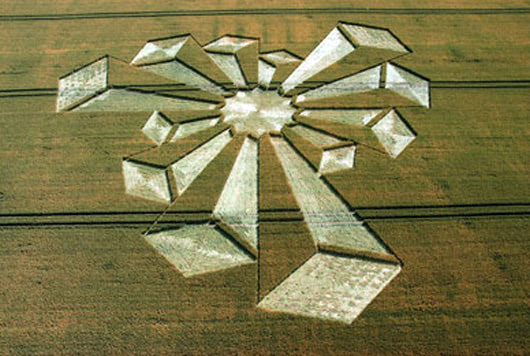
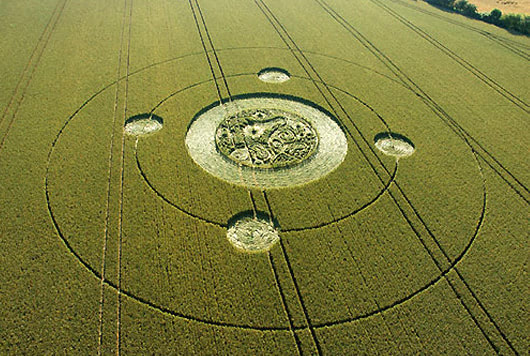
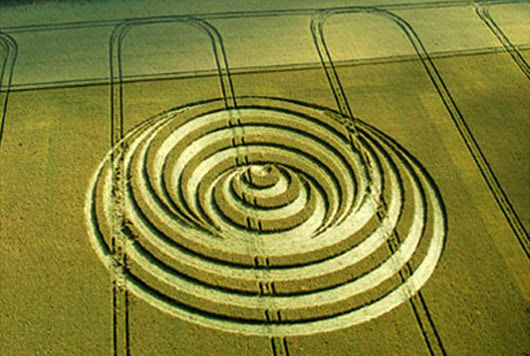
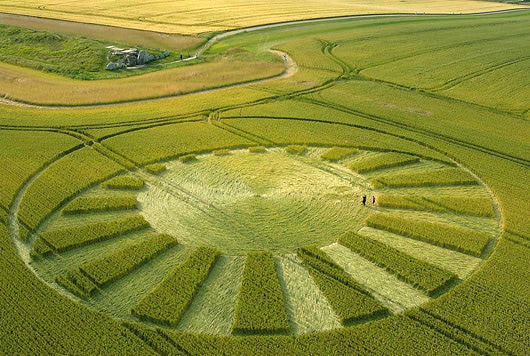
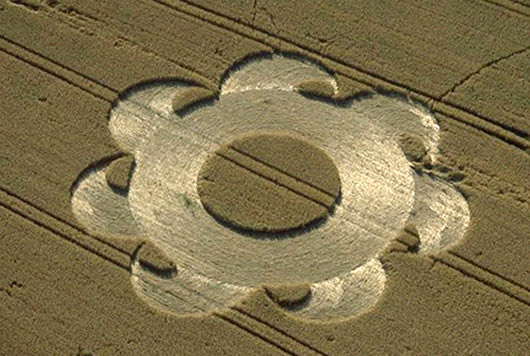
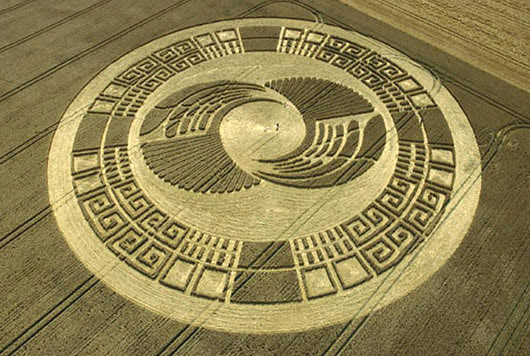
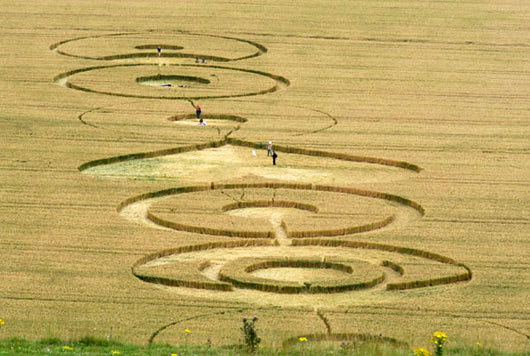
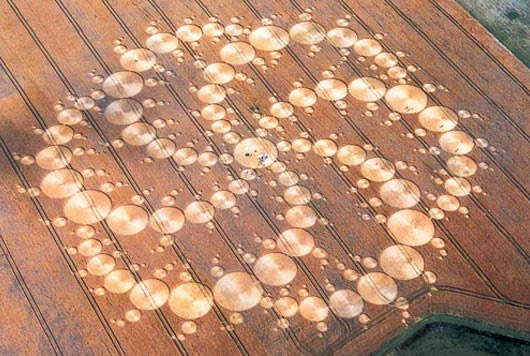
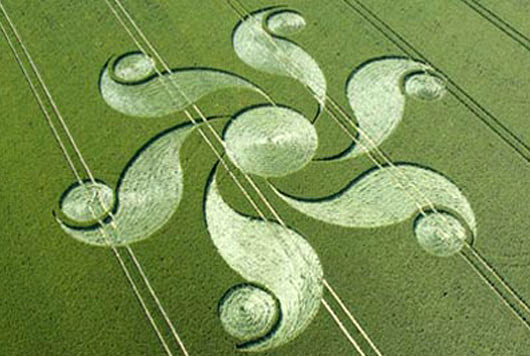
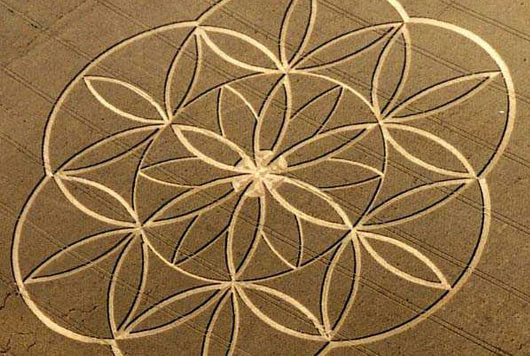
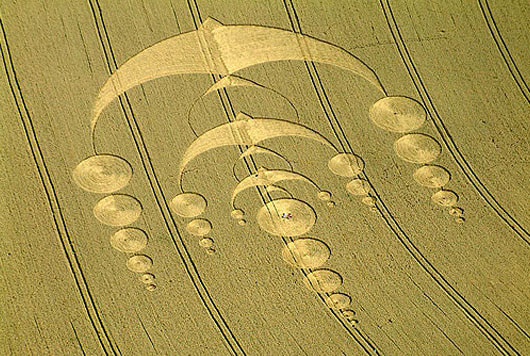
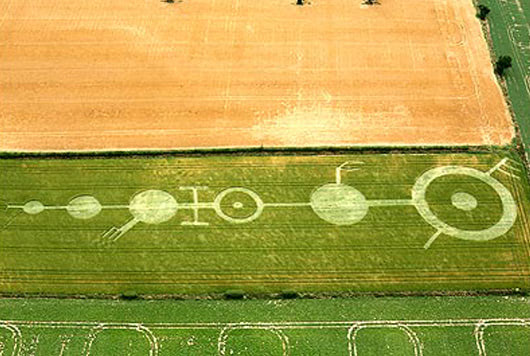
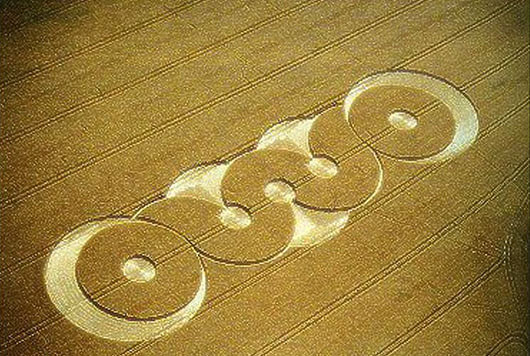
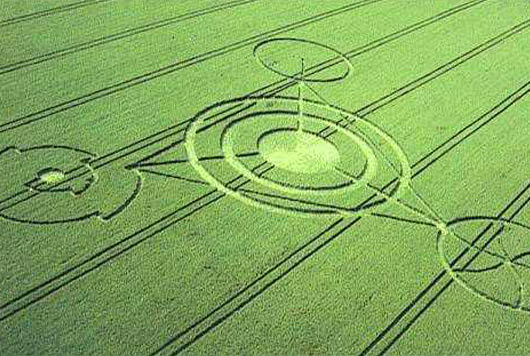
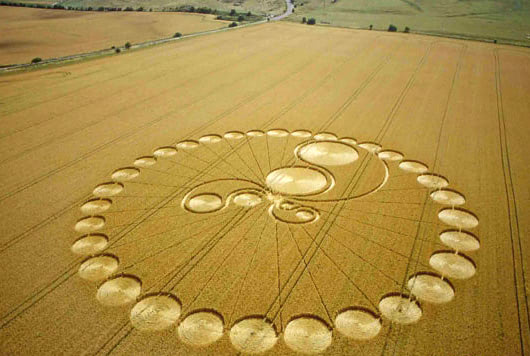
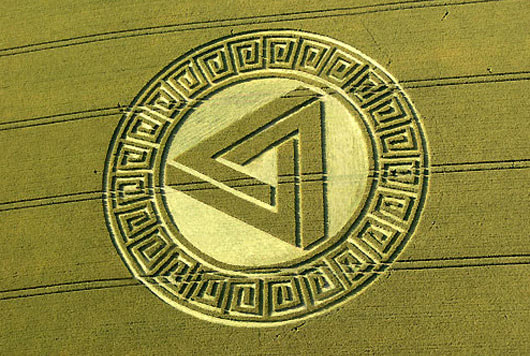
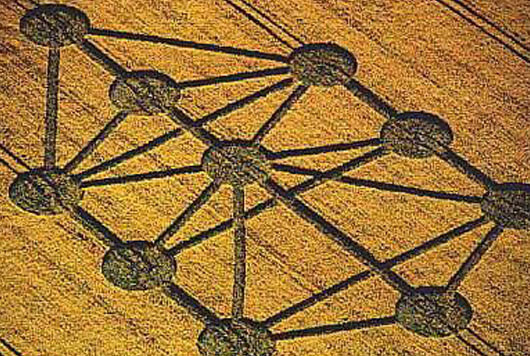
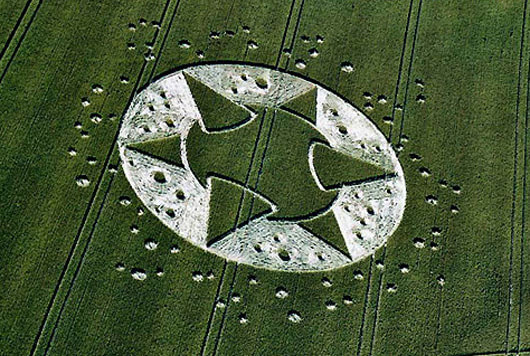
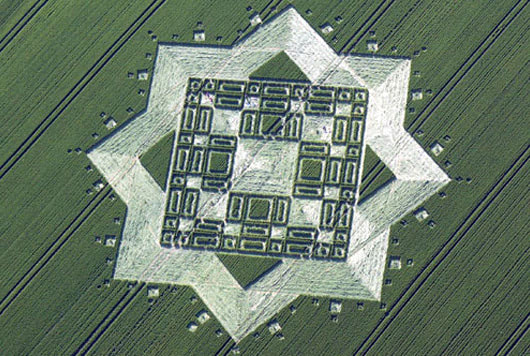
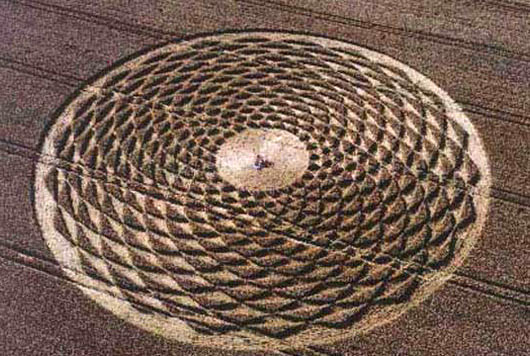
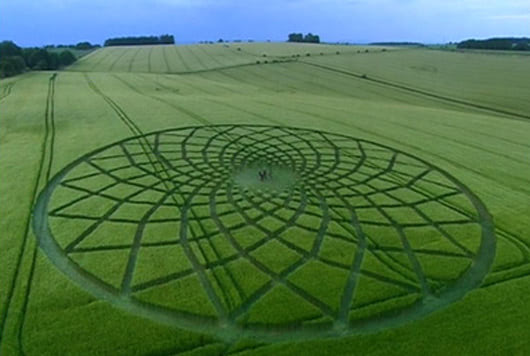
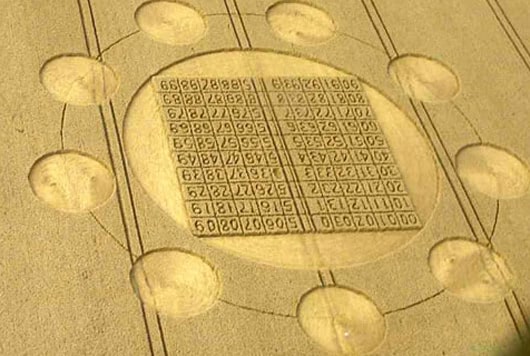
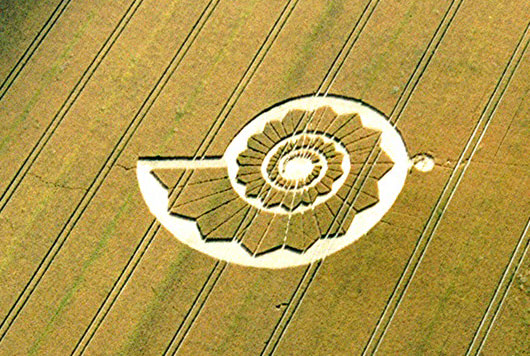
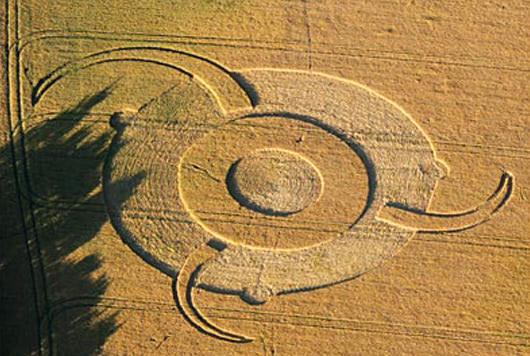
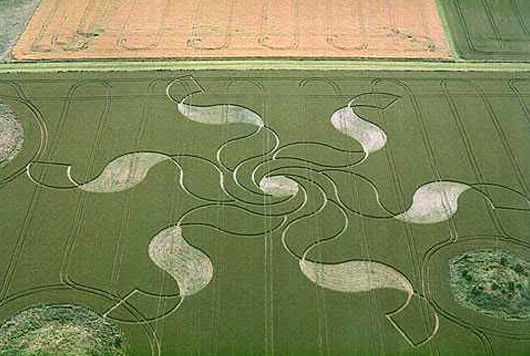
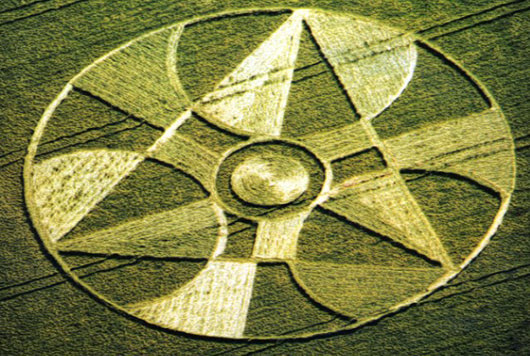
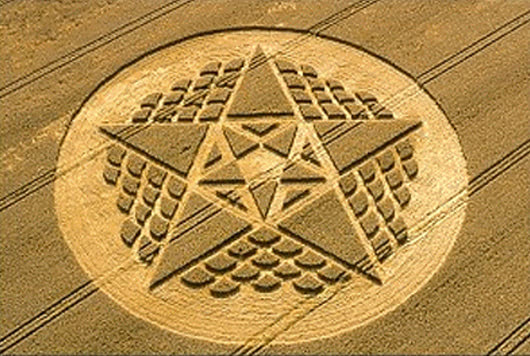
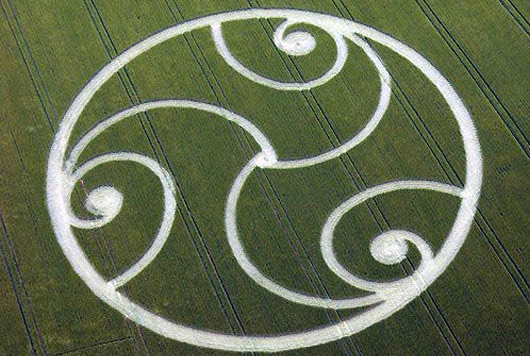
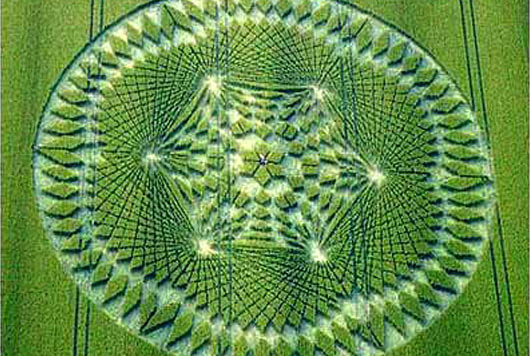
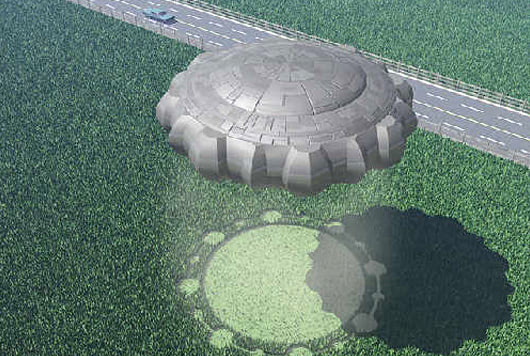
;-)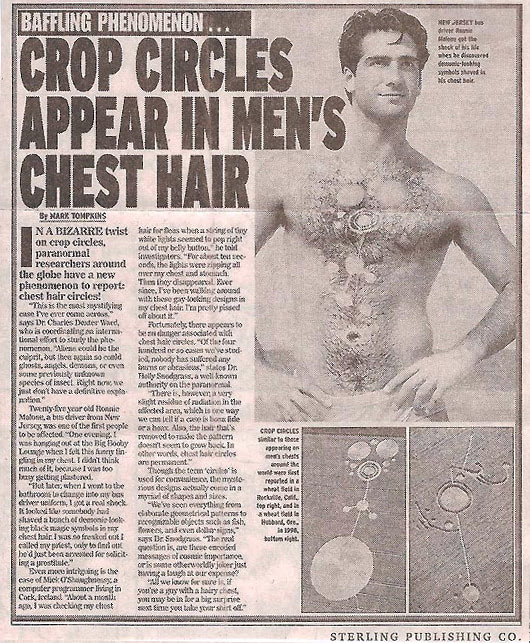
Related post: Aliens prefer Firefox


Comments (0)
Share your thoughts and join the technology debate!
No comments yet
Be the first to share your thoughts!